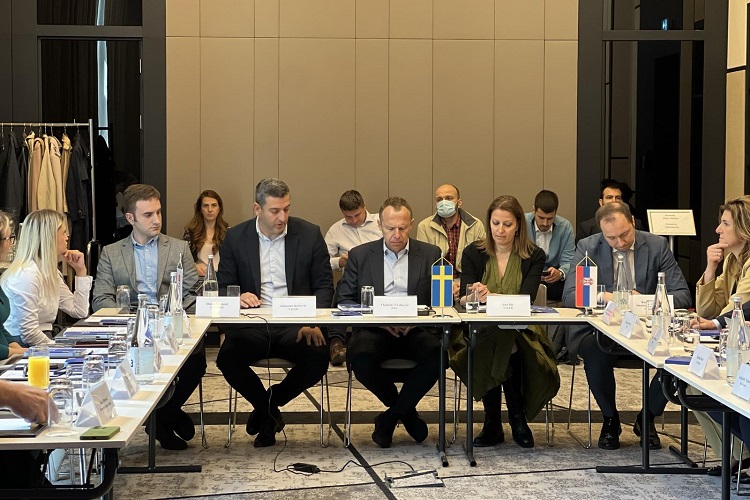Waste management reform and incentives for the economy on the way to a green transition in Serbia
The economy still sees the green transition as a priority, however, the support of the state is needed, first of all, through fiscal mechanisms, green public procurement and access to capital, because the private sector is still left to itself in the process of adapting to the requirements dictated by the European Union, is the conclusion of the ESG panel, which was organized by NALED, with the support of the Swedish Government, within the project "Efficient public procurement and sustainable supply chains to improve competitiveness".
This year, the panel gathered representatives of the economy, academic community, banking and civil sector with the aim of shedding light on the future of the ESG agenda in the context of current global trends and challenges.
- Last May, the main question was how much the EU agenda and sustainability goals push our companies to be more competitive, and how much they burden them, and the conclusion was that we should build an ecosystem in which we will be able to harmonize our internal policies and achieve synergistic effects. We now turn to the global movements between major powers that impose a focus on trade and customs policies that influence the relaxation of these regulations. The goal today is to look at the relevance of the ESG agenda going forward, to whom and how much it concerns. On the other hand, let's discuss what has been done, and what are still challenges - said Ana Ilić, director of the Department for Good Administration and Projects at NALED.
The panelists pointed out that ESG requirements in Serbia are still viewed more as an administrative burden than as an opportunity for strategic development. While international companies receive support from their headquarters, domestic companies often do not have the capacity or knowledge to comply with European regulations.
Also, the measures that are currently in force do not stimulate the economy to reduce the amount of waste that is taken to the landfill, because the current way of calculating the tax only takes into account the area of the business premises, so even those who produce less pay the same price. The recommendation of NALED's Gray Book is that the amount of waste should be the main criterion for calculating utility costs, which represents the first important step towards the decarbonization of industry and the implementation of a circular economy.
As stated, Serbia is the lowest in Europe when it comes to the use of alternative raw materials and fuels, primarily due to an inadequate waste management system, unsanitary landfills and legal restrictions that prevent the import of non-hazardous waste for energy purposes. It was also pointed out that the installation of solar panels and other sustainable technological solutions encounters legal and bureaucratic barriers.
Compared to examples from the region, such as the introduction of environmental taxes in Croatia that encouraged investment in composters and infrastructure, it was concluded that Serbia needs similar determination in order to make a real breakthrough.
As an important measure, it was also pointed out that it is necessary to work on afforestation and the preservation of biodiversity. Our country has undertaken the obligation that 40% must be under forests, and currently we are at 25%.
- With a more active role of the financial sector, better connection of the scientific community with the economy, as well as continuous education of all participants in the system, it is possible to create a national ecosystem that recognizes ESG as a strategic direction. There needs to be some positive examples to show companies that this is right. We are still in the initial phase. Without examples from practice that we are getting something out of it, very little investment will go in that direction. Therefore, without specific incentives and cooperation between the public and private sectors, the green transition can become another burden on the economy. ESG must be a tool for creating social and economic innovations, and not exclusively a regulatory obligation - concluded Ernest Vlačić, professor at FEFA Faculty.



